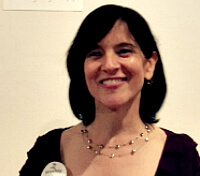260. Expert Interview: How to Be Your True Self in an Interview
Susan Bernstein, Ph.D.

Dr. Susan Bernstein has delivered career and executive coaching for smart, high-performing professionals seeking to boost their career satisfaction for over 20 years. She guides her clients to create work that fits, on their terms. Her deep understanding of the workplace and career transformation comes from her pioneering research, as well as from her own radical career re-invention from management consulting to executive coaching. A veteran of leadership roles at Franklin Covey, Intel and Accenture, Dr. Bernstein earned an MBA at U.C. Berkeley’s Haas School of Business and a Ph.D. in somatic psychology at the Santa Barbara Graduate Institute.
How to Be Your True Self in an Interview
“If people allow themselves to interview, and just be themselves in a natural way, they’re much more likely to get the kind of role they want. If they ‘fake it’ and try to be something that they think the interviewer wants them to be, if they land the role being something else, and then they show up for work, there’s a huge mismatch. It’s uncomfortable, awkward and often career-limiting on both sides. What I care about is helping people to say, ‘Wow, I feel like myself in front of this other person!’ I love to share tools people can use before the interview, during the interview and at the end, so they can really connect with another person. Even if they don’t get the job or the role they really want, they’ll have a real sense of genuine connection, and that person they’re sitting opposite is more likely to reconnect with them and help them in other ways.”
Why Is This Important?
“A big thing I like to talk about is, what can you do before the interview to fine-tune your inner psychology, so you feel good about yourself, and make a positive first impression on the interviewer. Some of those tools are pretty darned simple, and others maybe not so much. If you know who you’re going to interview with, go look them up on LinkedIn. See what you have in common. Imagine that you’re already working happily for this person, so that when you walk in you already have an innate sense of familiarity. Many people scare themselves before an interview, so shift your internal dialogue into the positive zone. Things like that are what help an interview to be a connecting moment, as opposed to an interrogation.”
What Are the Key Lessons Learned Here?
“What you want to actually do is communicate in a way that lets you feel good about yourself. Manage your own energy. If you’re having fun, if you’re delighted with your own answers, the way you feel about yourself, that energy will come through to your interviewer. Then you can notice how your interviewer is responding to your energy. And you can adjust—mildly, not wildly. Start your communication in a way that feels good to you. If you radiate that, it will come through to your interviewer. It’s a really important way to build the bridge.”
Books on The Topic
TED Talk: Amy Cuddy on Power Poses
Book: Presence: Bringing Your Boldest Self to Your Biggest Challenges, by Amy Cuddy
Connecting With Susan Bernstein, Ph.D.
Email: sbernstein@sensationalshift.com
Website: sensationalshift.com
Twitter: @DrSBernstein
Facebook: facebook.com/sensationalshift
LinkedIn: linkedin.com/in/drsusanbernstein
Free Gift
50% discount: Interviewing Authentically: A Workbook. Over 120 pages, and over 20 exercises to prepare for interviews. Offer good until July 31, 2016.
At website, sensationalshift.com, select “SHOP.” At Shopping Cart, type “DISCOVER2016” (all caps) in the coupon field, then click on “APPLY” and 50% will be deducted from the price.
Subscribe to the Podcast Free:


